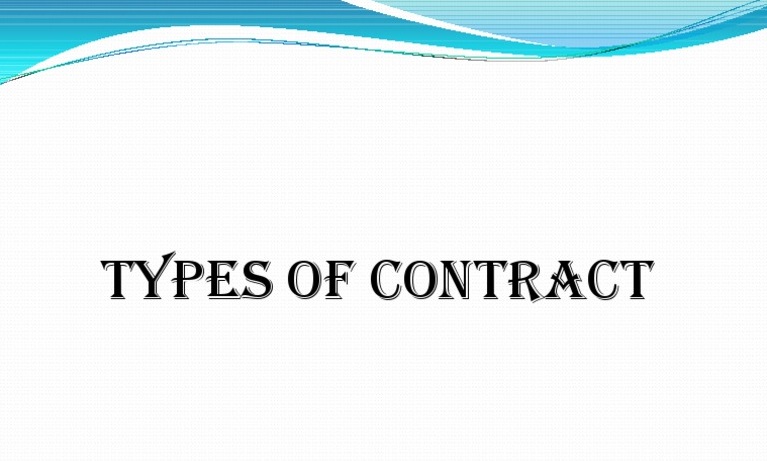TYPES OF BUILDING CONTRACTS | An Architect Explains
- UNIT PRICE (ITEM WISE) CONTRACT
- LUMP SUM (FIXED PRICE) CONTRACT
- LABOUR CONTRACT
- COST + CONTRACT
- PROJECT MANAGAMENT CONTRACT

Each contract has its own advantages and disadvantages. As an Architect, I have described the most common types of contracts along with their advantages and disadvantages under the following headings so that you can decide which one is suited for you:
Explain the Unit Price (Item Wise) Contract?
What are the advantages of Unit Price Contract?
What are the disadvantages of Unit Price Contract?
Explain the Lump Sum (Fixed Price) Contract?
What are the advantages of Lump Sum Contract?
What are the disadvantages of Lump Sum Contract?
What is a Lump Sum Contract with price adjustment?
Explain the Labour Contract?
What are the advantages of Labour Contract?
What are the disadvantages of Labour Contract?
Explain the Cost + Contract?
What are the advantages of Cost + Contract?
What are the disadvantages of Cost + Contract?
Explain the Project Management Contract?
What are the advantages of Project Management Contract?
What are the disadvantages of Project Management Contract?
EXPLAIN UNIT PRICE (ITEM WISE) CONTRACT?
WHAT ARE THE ADVANTAGES OF UNIT PRICE CONTRACT?
- The Architect is involved in this type of Contract because it is he who provides the quantities of each item (in the Bill of quantities), and negotiates the unit prices with the Contractor. Moreover, in this type of Contract, the Owner makes payments to the Contractor only after the Architect has verified the measurements at Site and certified the Contractor’s bills for payment. This way the Owner is safe as he is paying only for the volume of work done at site and not paying anything extra. Also, he is assured (because the Architect is involved), that the quality of the work will be upto the mark.
- In this type of Contract, the Contractor has to initially invest his own money for starting the work, and so the Owner need not worry about giving the Contractor a big advance.
- In general this Contract is considered the most scientific and most suitable for construction projects where the different types of items, but not their numbers, can be accurately identified in the Contract documents.
- The Contractor is also safeguarded against any contingencies, or variations in labour or material rates.
WHAT ARE THE DISADVANTAGES OF THE UNIT PRICE CONTRACT?

WHAT IS A LUMP SUM (FIRM FIXED PRICE) CONTRACT?
WHAT ARE THE ADVANTAGES OF LUMP SUM CONTRACT?
- A lump sum Contract provides for a price that is not subject to any adjustment on the basis of the Contractor’s cost experience in performing the Contract. This Contract type places upon the Contractor maximum risk and full responsibility for all costs and resulting profit or loss.
- Since the price is fixed, any unforeseen contingencies or variations in material or labour prices do not affect the Owner.
- It provides maximum incentive for the Contractor to control costs and perform effectively and imposes a minimum administrative burden upon the Contracting parties.
WHAT ARE THE DISADVANTAGES OF THE LUMP SUM CONTRACT?
- An Architect is not involved as this Contract is an agreement between the Owner and the Contractor for a final fixed price. So the Architect does not have a role to play , and so quality of work cannot be checked and controlled by an expert.
- Since specifications are not clear, the Contractor can use alternative/inferior brands of materials.
- Also there is a lot of ambiguity in the specifications, measurements, mode of payment, etc.
- Though the Contract is made on a fixed price, the Contractor may claim extras by giving different reasons, since the specifications, measurements are not clear.
- The Contractor takes money in advance from the Owner, and then he proceeds with the work at his own pace. Also sometimes, the Contractors deliberately hold up work towards the end, so as to extract maximum money from the Owner. So the Owner feels helpless as his money is with the Contractor.
- A lump sum Contract can be used in conjunction with an award-fee incentive and performance incentives, when the award fee or incentive is based solely on factors other than cost. The Contract type remains Lump Sum when used with these incentives. A lump sum Contract, shall be used when the risk involved is minimal or can be predicted with an acceptable degree of certainty. However, when a reasonable basis for firm pricing does not exist, other Contract types should be considered, and negotiations should be directed toward selecting a Contract type (or combination of types) that will appropriately tie profit to Contractor performance.

WHAT IS A LUMP SUM CONTRACT WITH PRICE ADJUSTMENT?
- based on established prices of specific items or the Contract end items,
- based on actual costs of labor or material that the Contractor actually experiences during Contract performance and
- based on cost indexes of labor or material that are specifically identified in the Contract.
In establishing the base level from which adjustment will be made, one shall ensure that contingency allowances are not duplicated by inclusion in both the base price and the adjustment requested by the Contractor under economic price adjustment clause.
WHAT IS A LABOUR CONTRACT?
In this type of Contract, the Owner buys and supplies all the material required for the construction to the Labour Contractor and only uses his labour. The system of employing Contract labour is prevalent in most industries including Construction, involving skilled and semi skilled jobs. A workman is deemed to be employed as Contract Labour when he is hired in connection with the work by or through a Contractor. Contract workmen are indirect employees; persons who are hired, supervised and remunerated by a Contractor who, in turn, iscompensated by the Owner of the site. Contract labour has to be employed for work which is specific and for definite duration.
WHAT ARE THE ADVANTAGES OF A LABOUR CONTRACT?
- This kind of Contract is sometimes preferred by the Owner, because he buys all the material by himself and thus saves a lot on the Contractor’s profit.
- Moreover, the Owner can buy the materials of his choice and can be sure of the brand that will be used in the construction.
WHAT ARE THE DISADVANTAGES OF A LABOUR CONTRACT?
However, I personally would discourage a Client from entering into this type of Contract for the following reasons:
- In this Contract also, the Architect does not have a role to play, and so quality of work cannot be checked and controlled by an expert.
- There is a lot of headache and tension involved in running around and arranging for the supply of materials at site, on time as the work progresses.
- It is easy to get fooled on the quality of sand, bricks etc because the Owner is not very experienced in assessing the quality.
- It is difficult to strike a good bargain when negotiating with suppliers and vendors, because the Owner is a one time Client, wheras the Contrctor normally has an advantage as he is a regular Client and a relationship is built between him and the suppliers.
- There is every possibility of pilferage of the material stored at site.
- Very often labourers, masons etc do not turn up to site as they may be lured for a day to some other site and hence the work gets delayed.
- Since the workers are generally paid for the work on a daily basis, the labour Contractor may purposely go slow so that he he takes longer to complete the job and so get paid more.
- Inferior labour status, casual nature of employment, lack of job security and poor economic conditions are the major characteristics of Contract labour. While economic factors like cost effectiveness may justify system of Contract labour, considerations of social justice call for its abolition or regulation.
- In fact, in my experience, I have seen that in most cases, the Owner ends up spending almost as much, at the end of the project as he would have if he had chosen any other type of Contract.
WHAT IS A COST + CONTRACT?
This type of Contract is not popular in India. This is a Contract agreement wherein the Owner agrees to pay the cost of all labor and materials plus an amount for Contractor overhead and profit (usually as a percentage of the labor and material cost). It is like a Labour Contract, but here the Contractor buys the materials and provides the labour and is reimbursed accordingly. This type of Contract is favored where the scope of the work is indeterminate or highly uncertain and the kinds of labor, material and equipment needed are also uncertain. Under this arrangement complete records of all time and materials spent by the Contractor on the work must be maintained.
This type of Contract can be altered according to the basis on which the additional amount paid to the Contractor is fixed.

- COST + FIXED % CONTRACT– It is based on a percentage of the cost
- COST + FIXED FEE CONTRACT – It is based on a fixed sum independent of the final project cost.
- COST + FIXED FEE BONUS CONTRACT –It is based on a fixed sum of money and a bonus is given if the project finishes below budget, ahead of schedule etc.
- COST + FIXED FEE WITH SHARING ANY COST SAVINGS CONTRACT– It is based on a fixed sum of money and any cost savings are shared with the Owner and the Contractor.
- INCENTIVE CONTRACTS – It is based on the Contractor’s performance on the agreed target – budget, schedule and/or quality.
WHAT ARE THE ADVANTAGES OF THE COST + CONTRACT?
It has the advantages of the Labour Contracts.
- In addition, since the Contractor gets an additional amount at the end of the project, it provides maximum incentive for the Contractor to control costs and perform effectively and on schedule.
WHAT ARE THE DISADVANTAGES OF COST + CONTRACT?
In this Contract also, the Architect does not have a role to play, and so quality of work cannot be checked and controlled by an expert.
- Since the Contractor is reimbursed based on the records of the workers he has employed and the materials he has bought, one can never be sure if these records are genuine, as there is no way of verifying them. So, this type of Contract is rarely adopted in India.
WHAT IS A PROJECT MANAGEMENT CONTRACT?
WHAT ARE THE ADVANTAGES OF PROJECT MANAGEMENT?
- The Clients can focus on their core operations while the Architect (Project Manager) looks after the management of Projects, people and issues, ensuring that deadlines are met, quality is maintained and costs are controlled.
- The Project Manager coordinates with all the agencies, including the Consultants, the Contractor and the Suppliers to ensure that the construction of the project goes on smoothly.
WHAT ARE THE DISADVANTAGES OF PROJECT MANAGEMENT?
Related Topics:


I was highly delighted when got linked to your explanation on this topic, more powers to your elbows
With best regards.
Titilola Fatai
Building Technology Student
Lagos State Polytechnic
Nigeria.
Nice piece. Loved the way you simplified things . From Anambra, Nigeria.
Hi Chibuike,
Thank you for your appreciation.
Admin
Good write up, it helps undergraduates student.
Hi,
Thank you for the appreciation.
Admin
You have really fed my mind with vast info
Hi,
Thank you for the appreciation.
Admin
This is very useful.thanks. but I want more information on how to set out a simple rectangular building.
nice piece..very helpful though was asked to write on 12 different contracts. do u hv an idea where I can get more?
Hi Cornelius,
Thanks for the appreciation. But not sure where you can get the info you are seeking.
Admin
Thanks for your contribution to ward the achievement of creativity.
Hi Dahiru,
Thanks for the appreciation.
Admin
Thanks 4 this very nice contribution. may Allah (s.w.a) bls you
Hi Ali Maraya,
Thank you for the appreciation. Happy to contribute.
Admin
Hello am a university student from Uganda ,Africa making research on labour contracts so am requesting for assistance on historiacal back ground on labour contracts in construction and more information on it and if it is possible you can refer me to some links were i can get more information.Thanks.
Hi Mirimu,
I do not know much about the history of labour contracts. Sorry I cannot help you in that regard.
Admin
Need full information for Builders and Civil Engineers.
Hi Dinesh,
It will take some time for me to put up this information. Pleases be patient.
Admin
thanks for your contributions
Hi Nafi’u Saleh,
Thank you for the appreciation. Please share.
Admin
valuable information
Thank You Shakil Khan. Please share in your circle.
Admin
Honestly, this is so helpful and organized THANX
Thank You Kansiime Joshua for the appreciative comment.
Admin
am very impressed with this post.i want more information on site supervisor and site work.
Hi Reuben,
It will take some time, but I will surely put up some posts on these topics.
Admin